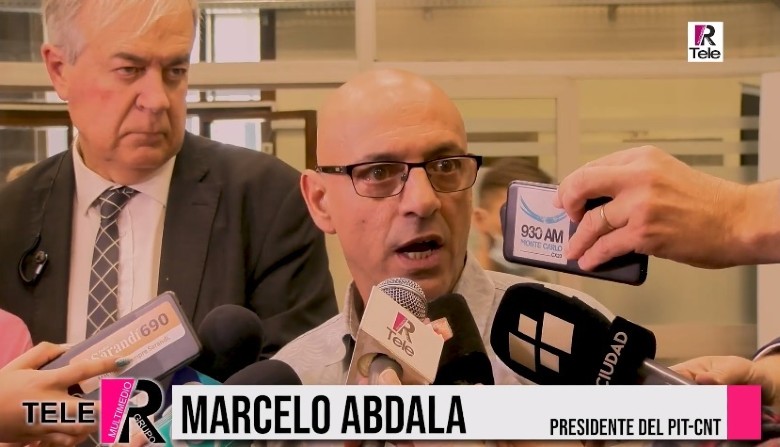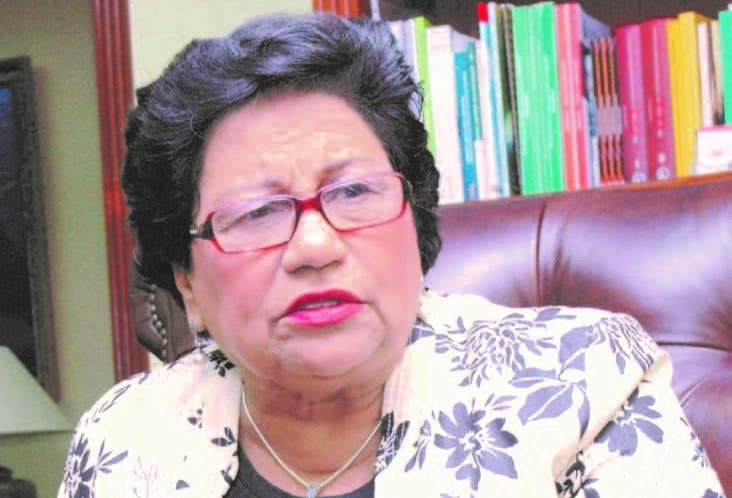This Thursday a delegation from the PIT-CNT trade union center headed by its president, Marcelo Abdala, went to the headquarters of the Ministry of Labor and Social Development (MTSS) to hold a meeting with Minister Pablo Mieres.
The meeting took place on the occasion of the economic announcements made by the Executive Branch in order to alleviate the increase in inflation and the cost of living in the country. In addition to Abdala, the vice president of the PIT-CNT, José Lorenzo López, and the president of the UTE (AUTE) union, Gonzalo Castelgrande, were present.
At the end of the meeting, Marcelo Abdala addressed the media present, including Tele R, and indicated that during the meeting “the minister was asked to expand on what the Executive Branch made public. It confirms us in the political resolution that the Secretariat (of the PIT-CNT) took, that is to say, that it was an insufficient approach».
“The Executive Branch is not in a position to vary in the case of the working population, that two percent that is an advance on account of future increases,” said Abdala. Likewise, he indicated that it was proposed that “they can be addressed at the negotiating tables that correspond to the public workers’ collective bargaining council and that there is the possibility of adapting there, determining in detail the amount of wage loss.” In this sense, he stressed that “it is important that people can choose on which aspects the two percent would be discounted or deducted.”
“The situation is very rough”
The president of the plant affirmed that the country is going through a very complex economic moment. “The situation is very rough, people are not making ends meet, the pot cannot be stopped. This is not only for the workers who are covered by collective bargaining, but also for vast sectors of the world of work, many times in the informal sector, many times doing a job for being unemployed, they are the ones who are suffering the most. We made a proposal to the Executive Power, which does not leave out the national minimum wage.
On this last point, Abdala blurted out that “the minister took note and the Executive is going to study it” and then emphasized: “We defend the interests of the working class, which has a salary that does not reach the end of the month.”
The expectations of the Superior Council of Private Wages
As for what they expect from the union side with respect to the Superior Council of Private Salaries, Abdala recalled that this “is more difficult.” “Despite the fact that there are certain sectors that all the economic studies say are doing very well, every time the idea of a salary adjustment appears, they always shout to the heavens,” he added.
“We are going to participate trying to contribute in the Council and in the branches, when they are convened, so that it is taken into account that here an additional loss of real salary is suffered from the one that already came previously,” he concluded.
Cuesta Duarte Institute
Meanwhile, the Cuesta Duarte Institute (PIT-CNT) affirmed that the measures announced by the government to control the increase in prices have been insufficient and “it will be difficult to avoid a new drop in real wages this year.”
“The course of economic policy to control price increases and channel their variation to the target range has not been clear,” he said in a statement.
Cuesta Duarte considered that “this time, the advances proposed for public and passive workers, such as the anticipated corrections for private workers, will hardly prevent a new fall in real wages this year.” “But even avoiding it and being a palliative for the income of wage earners, which have already been deteriorating for a long period, will not be enough to enable the process of recovery of the real wage committed for this year to begin.” He also stated that “considering that an expansion of the Uruguayan GDP of 3.8% is expected for this year, a new year without growth in real wages deepens the concentration of income and wealth.”


















